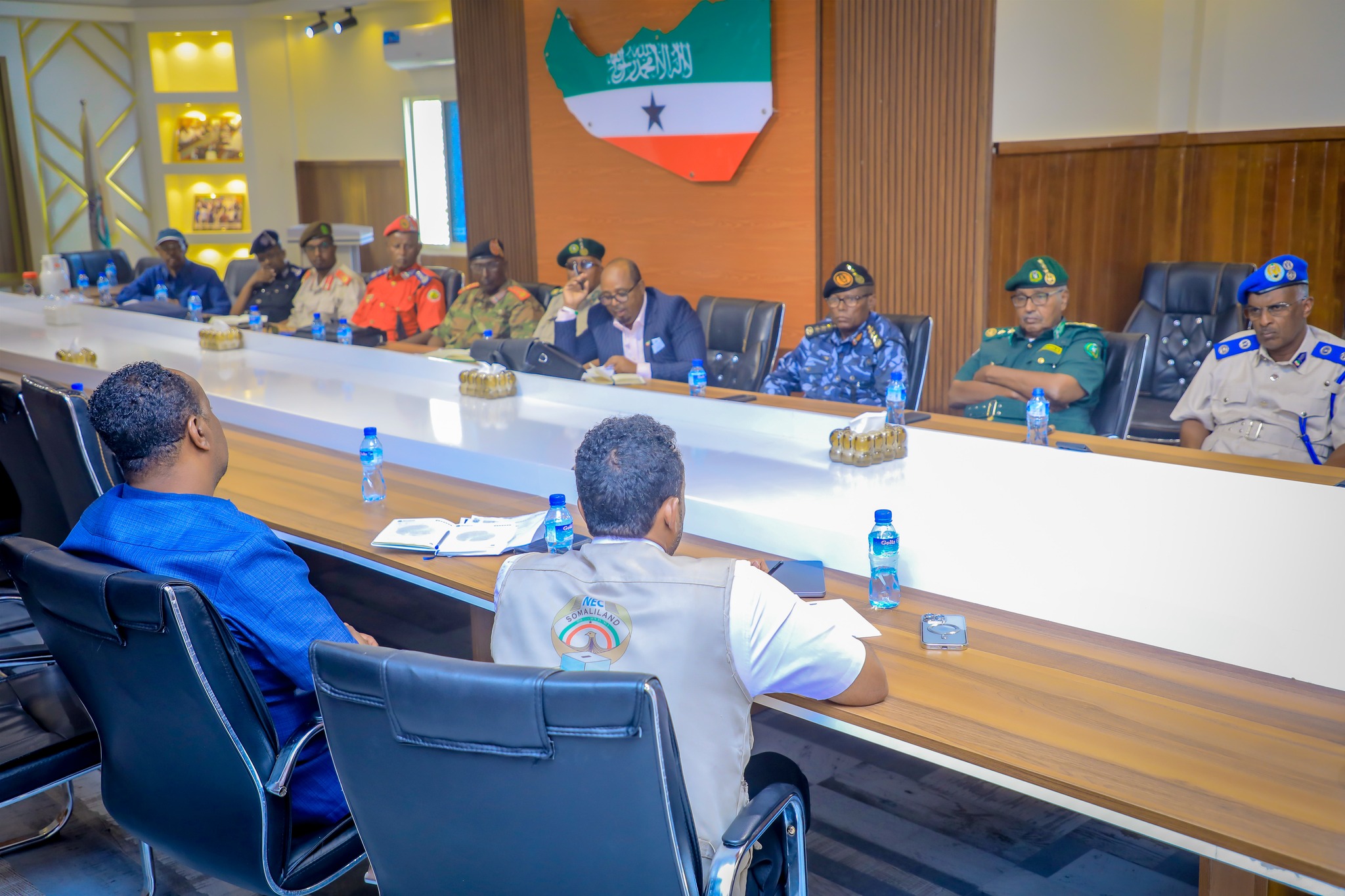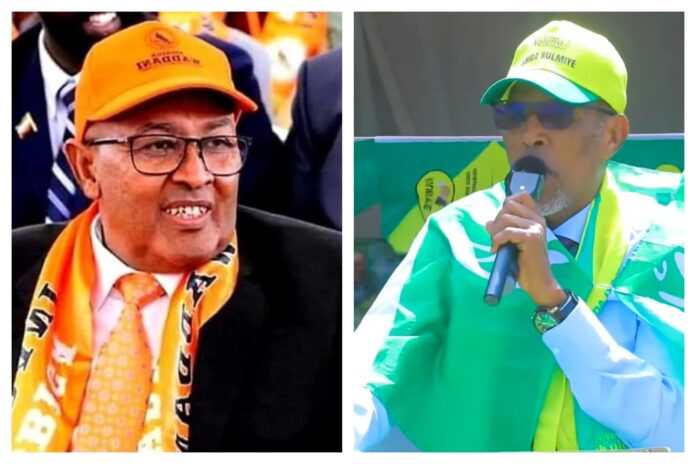BURCO (Kaab TV) – “‘I want to tell Muse Bihi, you are defeated. Tomorrow, you are gone!’ declared Fadumo Ali, one of Burco’s prominent women, as youthful voters began queuing past midnight on Tuesday, six hours before polling stations were set to open Wednesday morning.
Local journalists started conducting interviews as lines formed well before dawn.
“We are here for change. God willing, tomorrow will be a big day. I’m not going to sleep tonight; I’ll wait here until my polling station opens,” said Abdirahman Muse, a university student.
Burco and Borame can be described as pivotal swing cities in these Somaliland elections, and both the opposition Waddani Party and the ruling Kulmiye Party have focused substantial campaign efforts in these areas.
With visible grievances among locals, clan elders and influential politicians in these towns have openly campaigned for the opposition.
Clan rivalries significantly impact Somaliland’s electoral politics.
According to the Somaliland Independent Electoral Commission, polls will be open from 7:00 a.m. to 6:00 p.m. on Wednesday.
A nationwide curfew has been imposed, allowing only emergency vehicles and those authorized by the electoral body to travel between towns and regions.
Local and international observers are also present, monitoring the polls to ensure transparency and fairness.

This election holds major implications for Somaliland, coming after seven years under President Muse Bihi of the Kulmiye party and a delayed election for more than two years.
Voters will elect the next president and choose between three main parties and seven political organizations vying for official party recognition for a ten year term.
Key issues such as inflation, youth unemployment, lack of development, rampant corruption, and the risk of the country destabilizing were central to the opposition’s campaigns.
They highlighted these grievances to rally support, emphasizing a need for change.
In contrast, President Muse Bihi framed his campaign as a continuation of his experience and leadership, positioning himself as the “defender of Somaliland’s pursuit of international recognition”.
The conflict in Lasanod, a region previously under Somaliland’s control, and grievances in the Awdal region are also factors bolstering support for the main opposition party, Waddani.
The electoral commission has announced voting will take place in only 17 districts this year, down from 27 in the 2017 election, as Lasanod and much of the Sool region are now under the SSC-Khaatumo state, which opposes Somaliland and has blocked election activities.
Opposition MP Mohamed Abiib, from Awdal, seized the moment during a press conference in Hargeisa on Tuesday afternoon to rally Awdal residents against Muse Bihi.
“To the people of Awdal, tomorrow, all eyes will be on Borame. The past seven years have been terrible for our region,” said MP Abiib, who was detained in August. “Your elders and MPs have spoken. Please come out early and vote for change.”
Meanwhile, the ruling Kulmiye Party is touting President Muse Bihi’s Memorandum of Understanding with Ethiopia early this year for access to the Red Sea, which they claim could lead to Somaliland’s international recognition.
This issue has heightened tensions between Somaliland and the Somali federal government, which still claims Somaliland as part of its territory despite Somaliland’s self-declared independence since 1991.
President Muse Bihi also released a final recorded message, urging voters to re-elect him and his affiliated Hilaac organization.
“Tomorrow’s election is more than a contest; it is a test of Somaliland’s nationhood. Recently, it has reached a violent level,” he said.
Abdirahman Abdullahi Irro, Waddani’s presidential candidate, encouraged voters to make their voices heard on Wednesday.
“I know we are facing many challenges, but I believe you, as voters, have the power to free our country from a seven-year dictatorship,” Irro stated in a televised message.
Wednesday’s vote follows three weeks of intense campaigning, marked by a war of words and accusations between the ruling and opposition parties.
Over 1.2 million registered voters are expected to participate in what is anticipated to be a peaceful election.
Due to manual ballot counting, the electoral commission estimates that official results will be announced about a week after polling concludes.


